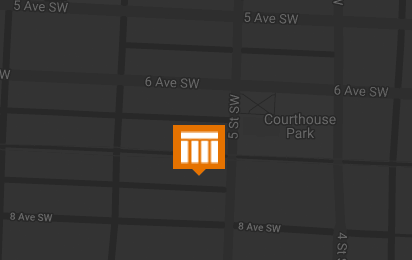Publication
Keep the Holiday Cheer and Avoid the Liability when Hosting a Holiday Party for Employees
Keep the Holiday Cheer and Avoid the Liability when Hosting a Holiday Party for Employees
For many employers and employees, the holiday season is a time to rejoice and celebrate the successes of the year. Celebrations are often in the form of an annual holiday party with delicious meals and ample alcohol. Regrettably, during this festive season, management (and their legal advisors) must dredge up the gloomy thoughts of potential liability for an employer-hosted holiday party.
To understand “Employer Hosting” it is useful to understand the underpinning concepts of social and commercial hosts. Social Hosts An example of a social host is an individual holding a private new year’s party at his home. In 2006, the Supreme Court of Canada clarified that social hosts (being non-employer and non-commercial hosts) are not automatically liable for injuries suffered by or because of an impaired guest. Rather, a Court must find “special circumstances” before it will consider making a social host liable.
Commercial Hosts
An example of a commercial host is a restaurant holding a private new year’s party for 50 paying customers. Unlike social host situations, case law has established that a commercial host can potentially be held liable for failing to take reasonable steps to prevent foreseeable harm to patrons or third parties. There is an inherent responsibility to the public and no particular need for ‘special circumstances’ to exist.
Employer Hosts
The law has not yet decided with certainty as to whether there is a separate category of duty and liability for “Employer Hosts”. There have been relatively few cases that have considered the question over the past 20 years. Most often, the cases relate to impaired driving situations. What is clear is that an employer has a high duty to provide a safe workplace and risks exposure to liability when it carelessly provides limitless alcohol with no supervision or safeguards and policies in place.
It is worth noting that by removing ‘social’ gatherings from the workplace and employing a commercial host to take responsibility for the provision of alcohol, an employer creates a significant layer of protection from potential ‘employer hosting’ lawsuits. Nevertheless, an employer must still be prudent. Appropriate monitoring by the employer is still probably necessary.
Employee Waivers
If done in appropriate time and proper circumstances, an employer may have its employees sign a Waiver in advance of a hosted event. Generally speaking, the Waiver must be provided well in advance, be specifically applicable to the circumstances, be ‘consistent with public policy’ and refrain from being ‘unconscionable’. These latter two terms are difficult to predict with certainty and the Courts reserve the right to examine situations on a case-by-case basis.
There is always a significant risk that, after the fact, the person who signed a Waiver and especially an employee, may allege that she had no realistic choice but to do so. Nevertheless, in the above circumstance, a signed Waiver may provide an employer significant legal protection.
It is also worth noting that Waivers can be placed under immense scrutiny by the Courts. As a recent example, a British Columbia Court decided that a Waiver may be unenforceable where it attempts to contract out liability for transportation to or from the site of the hosting event.
Other Considerations for an Employer
1. Workers Compensation WCB coverage may apply to an employer generally, but coverage is for injuries suffered ‘during the course of employment’ only. Therefore, employer-hosting events are likely not covered.
2. Insurance Although a business may have some form of liability insurance regarding injuries suffered by its employees or guests, some policies exclude coverage for conduct outside the scope of employment. Therefore, injuries arising out of employer-hosting events may not be covered.
3. The Occupational Health & Safety Act The Occupational Health & Safety Act defines “worker” and “work site” broadly and requires, among other things, that an employer is obliged to ensure (as far as it is reasonably practicable) the health and safety of workers and those present at work sites.
4. Occupiers Liability Act The Occupiers Liability Act excludes protection for an employer under section 3. An employer has certain duties to its employee which an employee cannot willingly accept the risk of.
Conclusion
The reality for an employer is that it is never entirely protected from potential liability for the conduct of its employees. There are many different grounds on which an employee or third party may allege liability against an employer. Motor Vehicle related situations for instance, have their own uniquely applicable law. An employer should be mindful of its continuous responsibility to provide a safe workplace for its employees, including when hosting a holiday party.
It is recommended that employers contact their legal counsel for a review of its plans, forms, protocols, “Do’s and Don’ts”, etc. An appropriately worded communique may be useful.
With proper planning, policies and execution, the holiday season really can be about good-cheer.
If you would like further information regarding prudent planning for the holiday season, please contact us at info@mcleod-law.com

